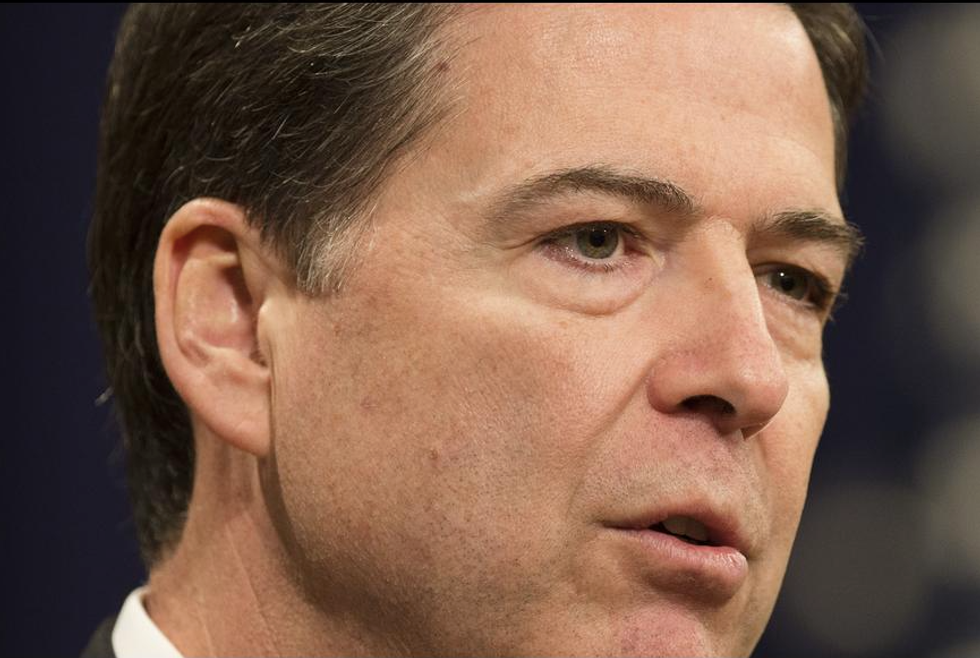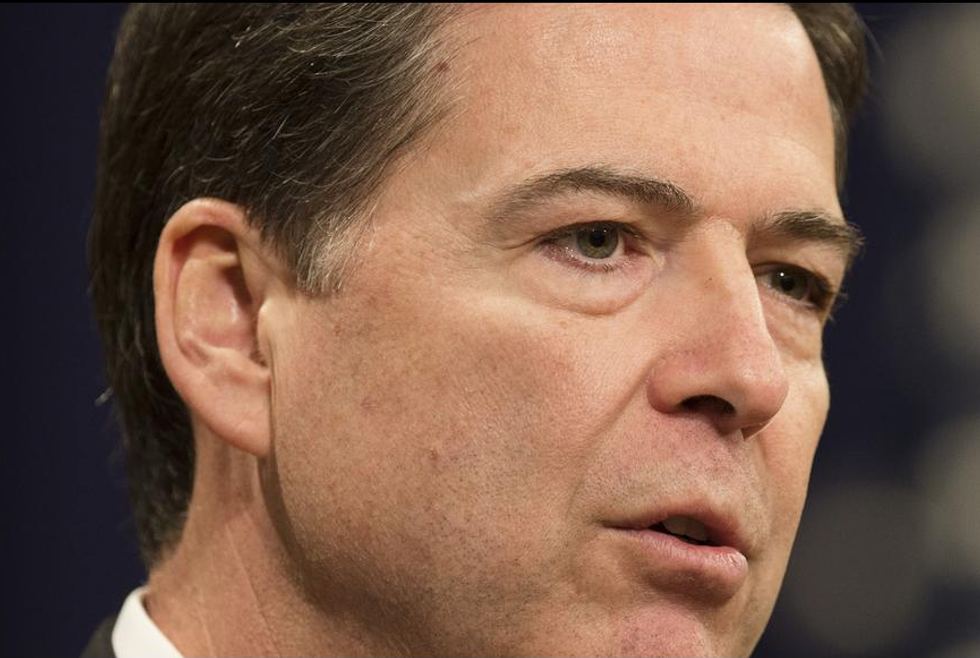
Director of the Federal Bureau of Investigation (FBI) James Comey speaks during an event for National Slavery and Human Trafficking Prevention Month at the Justice Department in Washington, DC, January 29, 2015. (AFP Phot/Jim Watson)

FBI Director James Comey said law enforcement officers often make assumptions about blacks that they would not make about whites, but said he doesn't believe such assumptions are based on racism.
“Police officers on patrol in our nation’s cities often work in environments where a hugely disproportionate percentage of street crime is committed by young men of color,” Comey said Thursday at Georgetown University in Washington, D.C. “Something happens to people of good will working in that environment. After years of police work, officers often can’t help but be influenced by the cynicism they feel.”

Comey addressed a range of topics about law enforcement and race, brought into sharp light after police confrontations ended in the deaths of unarmed black men in Ferguson, Missouri and New York City over the summer, followed by the point-blank shootings of two NYPD officers in their patrol car.
“A mental shortcut becomes almost irresistible and maybe even rational by some lights,” Comey said. “The two young black men on one side of the street look like so many others that officers has locked up. Two white men on the opposite side of the street, even, in the same clothes, do not. The officer doesn’t make the same assumption about the two white guys, whether that officer is white or black.”
Comey said the problem won't be solved solely by outfitting police officers with body cameras — devices now spreading across the country — but with police and the communities they serve having more empathy for one another.
“Why has that officer locked up so many young men of color? Why does he have that life-shaping experience? Is it because he is a racist?” Comey asked. “Why are so many black men in jail? Is it because cops, prosecutors, judges and juries are racist because they are turning a blind eye to white robbers and drug dealers? I don’t think so.”
If that were the case, he said, the problem would be easier to address with better training and police hiring practices. Instead it's more complicated, and has much to do with lack of opportunity for young minority men.
“Through the My Brother’s Keeper initiative, the president is addressing the disproportionate challenges faced by young men of color,” Comey said, referring to a program established by President Barack Obama to promote education and opportunity.
Comey expressed support for the Defense Department program allowing police to have military equipment, which prompted controversy during the Ferguson demonstrations. However, he said is some questions as to how it's used.
He said that another big problem is a lack of data, something he explained he doesn’t have the power to fix as FBI director.
“Not long after the riots broke out in Ferguson late last summer, I asked my staff to tell me how many people shot by police were African-American in this country,” Comey said. “I wanted to see trends. I wanted to see information. They couldn’t give it too me. It wasn’t their fault. Demographic data involving officer-involved shooting is not consistently reported to us through our Uniform Crime Reporting program. Because our reporting is voluntary, our data is incomplete and therefore, on aggregate, unreliable.”
He went on to reference a big city police chief who called for better data.
“He said he didn’t know if Ferguson police shot one person a week, one a year or one a century and that in the absence of good data, ‘all we get are ideological thunderbolts. What we need are ideological agnostics who use information to try to solve problems.’ He’s right,” Comney said.